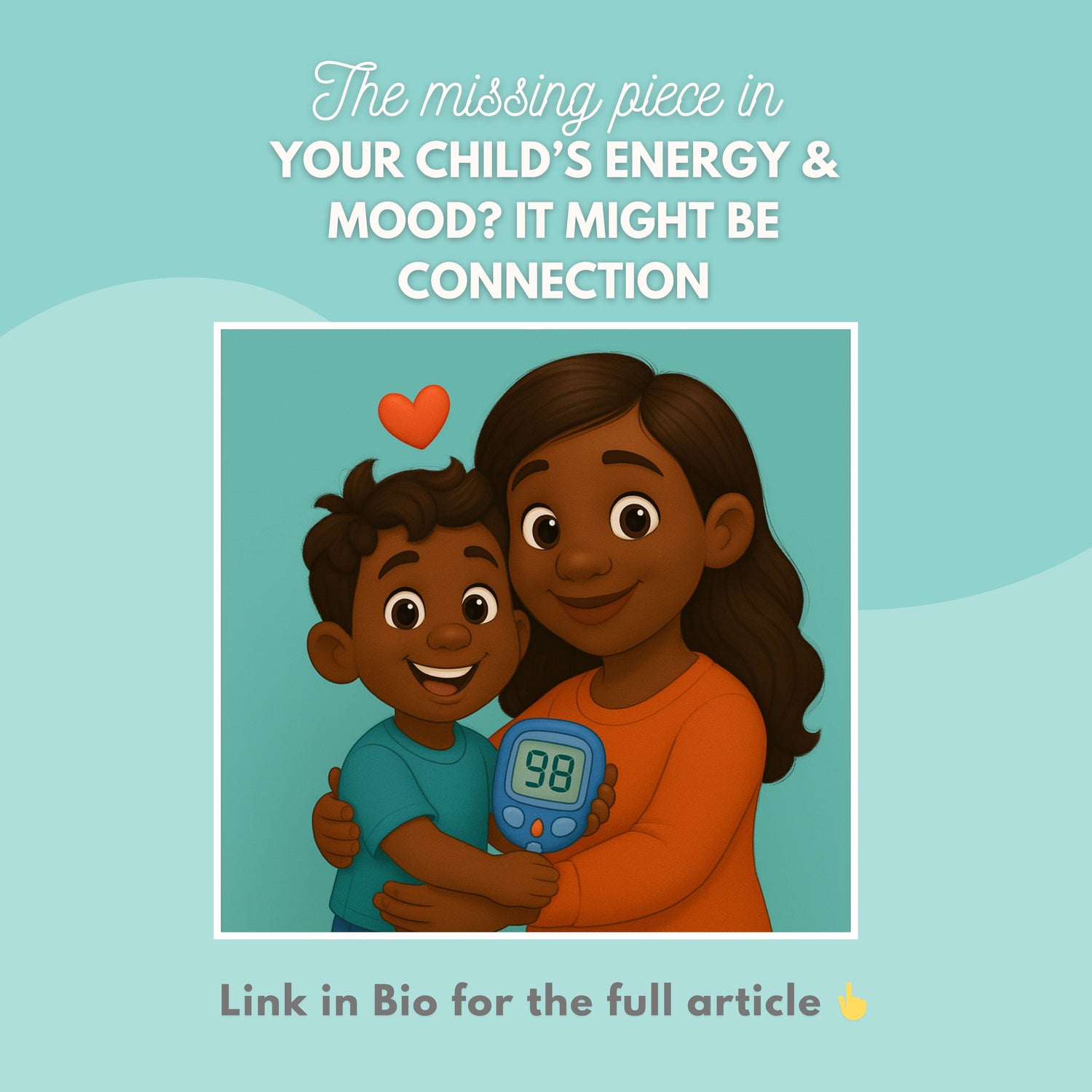Parent Letter
Dear webe,
Our family eats very healthy—with lots of whole plant foods—we’re active, and we really try to support our kids’ wellbeing in holistic ways. Still, there are days when one of our kids seems super tired after meals, has unpredictable mood swings, or gets cranky and hungry again soon after eating.
We’ve talked to our doctor, and there’s nothing medical going on from their evaluation—but I keep wondering: is there more to blood sugar than just food? Could something like stress or emotional state play a role too?
— Curious and Caring
Dear Curious and Caring,
Thank you for asking such a thoughtful and layered question. First, we always want to say: when it comes to your child’s health, we can’t offer personalized medical advice, and it’s important to stay in conversation with your child’s healthcare provider about any specific concerns.
That said, you’re absolutely on to something.
Blood sugar—and the body’s ability to use and regulate energy—is influenced by far more than just what we eat. In fact, connection, emotional safety, and nervous system regulation have powerful effects on metabolic processes like insulin sensitivity and glucose control.
The Body Doesn’t Just Digest Food. It “Digests” Experience.
When the nervous system feels safe, the body can do what it’s designed to do: digest well, regulate energy, balance hormones, and recover. But when stress is acute, chronic, or unpredictable—like emotional tension, overwhelm, disconnection, or pressure to perform—the body shifts into threat physiology.
This state can increase cortisol, reduce insulin sensitivity, and trigger cravings or crashes—even after a perfectly nutritious meal.
And the kind of stress that impacts kids most? It’s often not the big dramatic stuff. It’s the quiet, everyday moments of feeling:
-
Unseen or misunderstood
-
Pressured to please or perform
-
Alone with big feelings
-
Disconnected from trusted adults
Connection: The Unsung Hero of Blood Sugar Balance
While food and movement absolutely matter, we’re learning that authentic, emotionally safe connection is a vital ingredient in metabolic health. It helps the nervous system shift from “protect” mode into “repair” mode—and that shift supports everything from mood regulation to energy use.
Here’s how you can nurture this kind of connection:
-
Slow down and soften. Sometimes just sitting close, breathing together, or rubbing their back while they talk helps their body feel “held.”
-
Stay curious about the emotional layer. If they’re hungry again soon after a meal, ask gently: “Do you think your body’s hungry? Or does it maybe need something else—like a cuddle or a talk?”
-
Model micro-truths. Say, “I feel a little overwhelmed right now, but I’m here with you.” That authenticity teaches safety more than any script ever could.
-
Repair when needed. If you miss a cue or react with frustration (we all do), circling back with, “I noticed you pulled away—I want to try again,” can restore connection and calm.
This is not about replacing medical care or ignoring food. It’s about expanding the lens of what supports our children’s health.
Because connection isn’t fluff. It’s physiological safety. And that safety is deeply healing—emotionally, relationally, and yes, even metabolically.
From one parent doing the best they can to another, webe in this together!
Best wishes,
webe
P.S. If this topic resonated with you and you’re curious how it shows up in your own life—not just as a parent, but as a person—we wrote about this same theme from a more personal angle in our Substack. It’s a reflection on how our bodies respond not just to what we eat, but to how connected we feel—how safety, presence, and authenticity can also impact blood sugar. The Hidden Factor Sabotaging Your Blood Sugar (And It’s Not What You Eat)












Leave a comment
All comments are moderated before being published.
This site is protected by hCaptcha and the hCaptcha Privacy Policy and Terms of Service apply.